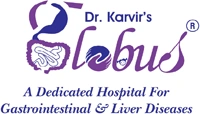Safe Alcohol Consumption: How Much is Too Much?
Alcohol is a staple in social gatherings, celebrations, and even some quiet nights at home. But with all the conflicting information out there, how do we know how much alcohol is "safe"? Is there a safe limit, or are we better off steering clear altogether? Let’s break it down in a way that's easy to understand and dive into the guidelines, risks, and best practices when it comes to alcohol consumption.

What Is Gall Bladder Removal Surgery?
Gall bladder removal surgery, or cholecystectomy, is a common procedure where the gallbladder is surgically removed. This is typically done when there are issues like gallstones, inflammation, or other complications that can't be resolved with medication or less invasive treatments.
So, How Much is Too Much?
Let’s start with the basics. Many of us have heard the advice that it’s okay to have "a drink or two" a day, but what exactly does that mean? According to Dr Vedant Karvir, a gastroenterologist, the recommended safe alcohol limits are:
- For women: No more than one drink per day.
- For men: No more than two drinks per day.
Now, what counts as one drink? It's important to be specific because not all drinks are created equal. Here’s a quick guide:
- One drink could be:
- 330 ml of beer (roughly one pint),
- 140 ml of wine (about a glass), or
- 30 ml of hard liquor like whiskey, vodka, or rum.
But here’s the kicker: these limits are daily, not cumulative. That means you can’t save up your weekly limit and binge over the weekend. The harmful effects of alcohol are magnified when consumed in large amounts over a short period—what we call binge drinking. This can lead to serious health problems, including pancreatitis and acute liver failure. Yikes, right?
What if You Have Medical Conditions?
Now, not everyone can indulge in alcohol even within these limits. If you have certain medical conditions, alcohol could spell trouble—serious trouble. Dr Karvir emphasizes that individuals with liver conditions like fatty liver disease or cirrhosis should avoid alcohol entirely. Alcohol is like throwing fuel on a fire when your liver is already struggling. Similarly, if you have conditions like pancreatitis, diabetes, or recurrent digestive issues (think chronic acidity or diarrhea), it’s best to skip that drink.
The liver is a powerful organ, but it’s also sensitive. Over time, alcohol can worsen existing liver conditions, sometimes leading to irreversible damage. This is particularly relevant now as fatty liver disease is becoming more common, especially in countries like India. It’s not just heavy drinkers who are at risk anymore; everyday habits like overeating and not getting enough exercise can set the stage for liver problems, and alcohol only makes things worse.
The Cancer Connection
Here’s something that many people don’t realize: alcohol can significantly increase your risk of developing cancer. If you have a family history of cancer, you might want to think twice before reaching for that bottle. Studies have shown that alcohol consumption is linked to a higher risk of various cancers, including liver, breast, and colorectal cancer. And this isn’t just about heavy drinking—even moderate consumption can raise your cancer risk. So, the question is: is it worth the gamble?
Medication and Alcohol: A Risky Mix
Another point that Dr. Karvir makes is that mixing alcohol with medication is a big no-no. If you’re on antibiotics, painkillers, or other medications, adding alcohol to the mix can lead to dangerous side effects. You’re looking at anything from dizziness to severe complications like liver damage or even heart problems. The safest bet? Check with your doctor before you sip.
The Legal Side of Things
Let’s not forget about the legal drinking age. This varies depending on where you live, but in many places, you need to be at least 21 years old to drink beer or wine, and 25 years old for hard liquors like whiskey or vodka. Age restrictions exist for a reason—our bodies, especially our brains, are still developing well into our 20s, and alcohol can interfere with that process.
Binge Drinking: Why It's a Big Deal
We’ve all heard stories about wild weekends and nights that ended with one drink too many, but binge drinking is more dangerous than most people think. Consuming large amounts of alcohol in a short period can overwhelm your liver’s ability to process it, leading to conditions like acute pancreatitis or even acute liver failure. It’s not just a bad hangover—it’s a serious health risk.
Think of your liver as a factory processing alcohol. When you drink a small amount, it can handle the load. But throw too much alcohol at it at once, and things start to break down—literally. This is why binge drinking is one of the leading causes of sudden liver failure. The message? Slow and steady wins the race.
Does Alcohol Have Any Health Benefits?
For years, we’ve heard that a glass of red wine a day is good for the heart, but according to Dr Karvir, that myth has been debunked. Recent studies have shown that alcohol doesn't offer the protective benefits we once thought. In fact, the risks often outweigh any potential benefits. So, if you’re thinking of starting a daily wine habit for your health, it might be better to reach for a glass of water instead.
Pregnancy and Alcohol: No Room for Compromise
If you’re pregnant or planning to be, the advice is clear: avoid alcohol completely. Drinking alcohol during pregnancy can lead to a host of issues, including fetal alcohol syndrome, which can affect your baby’s development. This holds true even for small amounts of alcohol—there’s simply no safe limit during pregnancy.
Final Thoughts: Less is More
At the end of the day, the safest amount of alcohol is none. While it’s true that many people can enjoy alcohol in moderation without immediate health consequences, the risks are still there. From liver disease and cancer to the potential dangers of binge drinking, alcohol can be more harmful than helpful.
Dr Karvir’s message is simple: if you don’t drink, don’t start. If you do drink, try to minimize your intake. The less alcohol you consume, the better your chances of avoiding its harmful effects. After all, your health is worth more than a fleeting buzz.
So, the next time you find yourself at a party or unwinding after a long day, ask yourself— how much is too much? The answer might surprise you.
Have more questions? Reach out!
📞 +91 9833106104
📧 Email: info@globushospital.in
🌐 Visit: Globus Hospital
📍 Address: 201, Second Floor, Kothari Milestone Mall, Near Natraj Market, S V Road, Malad (West), Mumbai - 400064.
Others Condition:
Bloating | Cancers of Stomach, Intestine & Liver | Constipation | Hirshsprung’s Disease | Gallstone | Dysphagia | Inflammatory Bowel Disease | Pancreatitis | SIBO | Barrett’s Esophagus | Blood in Stools / Vomitus | Celiac Disease | Diarrhea | Fatty Liver | Gerd | Irritable Bowel Syndrome | Piles



